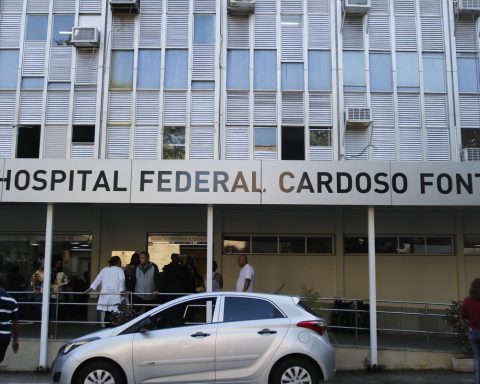Throughout 2021, the Union paid R$303.41 billion in arrears to states, municipalities, federal banks, controlled entities and federal state-owned companies. The data are contained in the Report on Guarantees Honored by the Union in Credit Operations, released today (27) by the National Treasury.
The amount represents an increase of 2.5% in relation to what was paid in 2020, when the Union paid R$ 296 billion in overdue debts. There were R$ 112.92 billion in internal credit operations and R$ 190.48 billion in external operations.
The Treasury reported that federal public banks are the largest creditors in domestic credit operations. They concentrated 98.1% of the total operations.
Caixa, Banco do Brasil (BB) and the National Bank for Economic and Social Development (BNDES) lent BRL 110.74 billion in 2021. Private banks lent only BRL 2.18 billion, which represents only 0. 7% of internal operations.
We have already organized multilateral ones, such as the International Bank for Reconstruction and Development (Bird), the Inter-American Development Bank (IDB), the Latin American Development Bank (CAF), among others, account for 91% of foreign credit operations.
Together, these organizations lent R$ 173.27 billion. Bird lent the largest amount R$81.30 billion; followed by the IDB, with R$ 80.53 billion and CAF with R$ 8.73 billion. The agencies were responsible for BRL 9.13 billion and the private creditors for BRL 8.07 of the operations.
The report also points out that, in 2021, the Union paid R$ 8.96 billion in debts from subnational entities. The amount refers to the debts of five states and one municipality.
The highest amounts honored were related to delinquencies with Rio de Janeiro (R$ 4.18 billion), Minas Gerais (R$ 3.13 billion), Goiás (R$ 1.3 billion), Amapá (R$ 194.32 billion million), Rio Grande do Norte (R$ 156.98 million), in addition to the city of Belford Roxo (R$ 1.56 million).
“The amounts honored in 2021 increased the need to finance the federal public debt, since the Union is prevented from executing the counter-guarantees of several states that obtained injunctions in the Federal Supreme Court (STF) suspending the execution of said counter-guarantees”, informed the Treasure.
According to the report, last year 50 new guaranteed credit operations were contracted, of which 40 are internal guarantee contracts and 10 are external guarantee contracts.
The Treasury also said that most of the guaranteed operations contracts were carried out by municipality, which carried out 36 signed contracts, which represents 72% of the total signed contracts.
Among borrowers, the states have the largest share, with 77.2% (R$ 234.13 billion) of the total outstanding balance. Municipalities and federal banks account for 10.1% (R$ 30.54 billion) and 7.5% (R$ 22.79 billion), respectively. Controlled entities hold 3% (R$9.19 billion) and federal state-owned entities hold 2.2% (R$6.75 billion).
The State of São Paulo has the largest debt balance in secured credit operations, with 13.4% of the total, totaling R$40.72 billion; followed by Rio de Janeiro with 12.2% of the total, which totals R$ 37.14 billion.
Minas Gerais comes in third, with R$ 25.69 billion in debt. Bahia comes after, with R$ 17.35 billion and Ceará in fifth place, with R$ 15.25 billion in debt.
Completing the list of the seven largest debtors, the states of Rio Grande do Sul, with R$ 12.17 billion; and Pernambuco, with R$ 11.01 billion. The other states, together, total R$ 74.78 billion in debt.
Regarding the municipalities, Rio de Janeiro appears in the front with R$ 7.46 billion in debt. Then comes Manaus, with R$ 2.57 billion; Fortaleza, with R$ 2.26 billion; São Bernardo do Campo, with R$ 2.12 billion; and Belo Horizonte, with R$ 1.83 billion. The other municipalities, together, owe R$ 14.27 billion.
Warranties
The guarantees represent the assets offered by the Union, represented by the National Treasury, to cover possible defaults on loans and financing from states, municipalities and other entities such as national banks or foreign institutions, such as the IDB, Bird and the World Bank.
As the guarantor of the operations, the Treasury is informed by the creditors that a certain portion of the contract has not been settled.
If the entity does not fulfill its obligations within the stipulated period, the Treasury compensates for the defaults, but deducts the amount covered by blocking ordinary federal transfers, in addition to preventing new financing.
There are cases, however, of blocking the execution of counter-guarantees. Between 2019 and 2021, several states that obtained injunctions in the Federal Supreme Court (STF) suspending the execution.
















